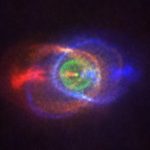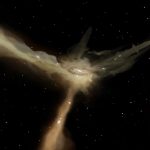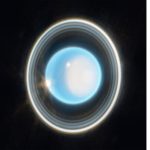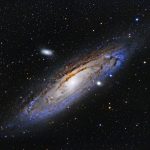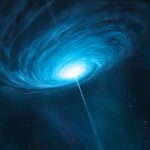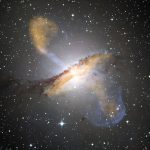Here’s what we know about Earth’s temporary mini-moon
For a little over a month now, the Earth has been joined by a new ‘mini-moon.’
The object is an asteroid that has been temporarily...
The first close-up picture of star outside the Milky Way
Like a performer preparing for their big finale, a distant star is shedding its outer layers and preparing to explode as a supernova.
Astronomers have...
Scientists uncover star pairs linking stellar life and death
Astronomers at the University of Toronto (U of T) have made an exciting discovery: the first pairs of “living” stars and “dead” remnants in...
Here’s how to weigh gigantic filaments of dark matter
How do you weigh one of the largest objects in the entire universe? Very carefully, according to new research.
The cosmic web is the largest...
What a misplaced meteorite told us about Mars
11 million years ago, Mars was a frigid, dry, dead world, just like it is now. Something slammed into the unfortunate planet, sending debris...
Sun-like stars around black holes: What gives?
Buried in the treasure trove of the Gaia catalog were two strange black hole systems.
These were black holes orbiting sun-like stars, a situation that...
Uranus is getting colder and now we know why
Uranus is an oddball among the Solar System’s planets.
While most planets’ axis of rotation is perpendicular to their orbital plane, Uranus has an extreme...
Scientists explore ‘dark big bang’ as the birthplace of dark matter
A groundbreaking study by researchers at Colgate University sheds light on a new theory about the mysterious origins of dark matter.
Assistant Professor of Physics...
The biggest black holes may start from the tiniest seeds
The existence of gigantic black holes in the very early universe challenges our assumptions of how black holes form and grow.
New research suggests that...
Egg-shaped galaxies may be aligned to the black holes at their hearts
Black holes don't have many identifying features. They come in one color (black) and one shape (spherical).
The main difference between black holes is mass:...



